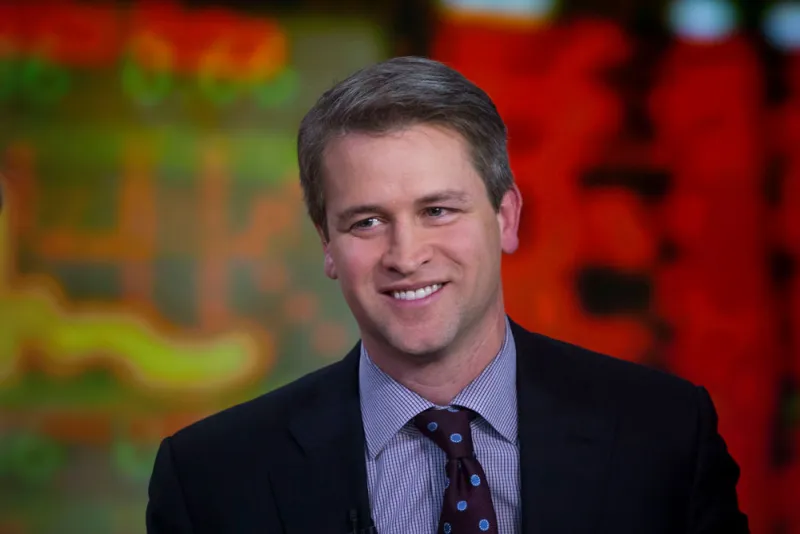Hedge funds are off to their strongest first-half performance in recent memory. But even among the superstars posting gains in the mid-20 percent range or higher, one stands out in particular.
Many of the top performers are long-short funds with roots to Julian Robertson, Jr.’s Tiger Management, sometimes called Tiger Cubs (because their founders worked for Robertson) or Tiger Seeds (because they got start-up capital from him). These equity-focused funds have surely gotten a boost from the strong performance of the Standard & Poor’s 500 stock index — which gained 18.5 percent through June including dividends reinvested — although many of these funds bested that performance even with significant short bets.
Tiger Cub Tiger Global Management, founded by Chase Coleman, notched a 29.7 percent gain for the first half of the year, while Tiger Global Long Opportunity, its long-only fund, rose 26.4 percent. Another Tiger Cub, Stephen Mandel Jr.’s Lone Pine Capital, posted 24 percent to 25 percent gains in both its long-short and long-only funds for the first half of the year, while Viking Global Equities, the long-short fund operated by O. Andreas Halvorsen’s Viking Global Investors, returned 17.2 percent for the period.
Elsewhere, Chris Hohn’s The Children’s Investment Fund, not a Tiger-related fund, is up 26.3 percent for the year, according to an investor.
But one of the best-performing funds this year isn’t equity focused. Jason Mudrick’s Mudrick Distressed Opportunity fund is up more than 29 percent for the first half of the year, according to two sources who have seen the results.
The fund — which invests in bankruptcies, restructurings, and struggling companies in general — gained 16.3 percent in 2018, 6.2 percent in 2017, and about 39 percent in 2016.
Mudrick declined to comment.
This year’s gains have been heavily driven by the firm’s investment in NJOY, a maker of electronic cigarettes. It had filed for bankruptcy in September 2016 for a variety of reasons, including a new federal regulations from Food and Drug Administration.
In 2017 Mudrick become the majority owner after his firm provided a “majority” of a $35 million fund raising, enabling the company to emerge from bankruptcy later in the year, according to a press release at the time.
In February of this year, NJOY completed a funding round that valued the company at $1.2 billion, according to the Wall Street Journal. On May 1 the paper reported that NJOY was seeking to raise $300 million, which would value the company at as much as $5 billion.
It wound up raising just $130 million, for a valuation of $2 billion. Investors included Tiger Cub John Griffin, who had earlier closed his hedge fund firm Blue Ridge Capital, and Falcon Edge Capital, the hedge fund firm launched by Rick Gerson, a founding partner at Blue Ridge, according to the report.
Even so, at the time Mudrick’s NJOY investment was on its books at a lower valuation. According to The Journal, NJOY, which competes with Juul Labs — a hedge fund favorite — is gaining market share from a new vaping device.
Mudrick launched his firm in 2009 after spending most of his previous nine years on Wall Street at Contrarian Capital Management. It managed $2.4 billion earlier this year.
So far this year it has made six new investments, which is not a high for the firm, according to an investor. Mudrick mostly invests in companies that have enterprise values of between $1 billion and $2 billion. The portfolio is focused on North America, including two companies in Canada. One is Toronto-based education publishing giant Nelson Education.
Institutional Investor earlier reported that Mudrick raised money for Mudrick Distressed Opportunity Drawdown Fund II and the related offshore vehicle, Mudrick Distressed Opportunity Drawdown Offshore Fund II. It is focusing on middle-market distressed credit. The fund is the second vintage of Mudrick Distressed Opportunity Drawdown Fund.
Last year, Mudrick raised $208 million for Mudrick Capital Acquisition Corp., a blank check company, also known as a special purpose acquisition company (SPAC). It has not yet done a deal. It has seven months left before the two-year expiration to complete a transaction. The SPAC would need approval from shareholders to extend that deadline.







